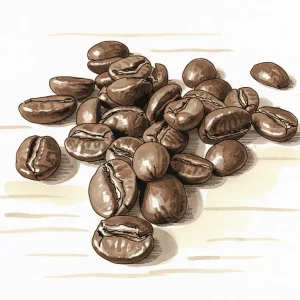Branderij Luijendijk
Branderij Luijendijk in Schiedam roasts small batches of fresh specialty coffee every Monday, buys directly from farmers at fair prices, and experiments with single origins, barrel-aged releases, and tasting packs that let enthusiasts discover new flavors at home and in cafés together
Branderij Luijendijk Beans
Showing all 5 results
De goedkoopste prijzen per 1 kg worden weergegeven
-
Brazilië – Fazenda Pedra Preta Agroforestry Farm
€ 118,00 -
Cameroon – More than fair – Kumbo
€ 28,50 -
Colombia – Las Perlitas
€ 170,00 -
Colombia – Los Osos
€ 146,00 -
Peru – Chuquibamba
€ 130,00
More About Branderij Luijendijk
From hobby to micro-roastery
Branderij Luijendijk began as a simple hobby project in Schiedam. Founder Redmar Luijendijk built his own one-kilo roaster in 2016, because truly fresh beans were hard to find. In September 2017 he quit his job and started roasting full time. Since then, the company has grown into a micro-roastery that delivers fresh coffee directly to customers.
The team is estimated at two to ten people, small enough for personal attention, large enough for craftsmanship. Every Monday they run the 5 kg Probat drum, so the beans always go out the door fresh. This weekly schedule keeps quality high and stock low, something enthusiasts appreciate.
Roasting with precision
Luijendijk roasts in small batches to maintain maximum control. After each batch the team cups the coffee themselves. Only then are the beans shipped one to two days later. This way, only approved flavors end up in the bag.
A specific profile is chosen for each bean. Espresso drinkers get a slightly different roast than filter fans. That flexibility ensures home baristas, cafés and offices experience the same consistent taste.
Contemporary coffees and flavors
The assortment consists of single origins and a few blends with a clear story. Every coffee is fully traceable, bringing taste and origin together in the cup.
- Brazil Fazendas Klem Estate, organic and semi-washed, delivers soft caramel and hazelnut notes with a full body.
- Cameroon “More Than Fair” Kumbo surprises with walnut, dried fruit, and milk chocolate, a rarity for this region.
- “Tres Hombres” Barrel-Aged from the Dominican Republic matures in rum casks, yielding a bold, sweet twist.
- Colombia Santa Maria combines berries, orange, and milk chocolate, and supports conservation in Huila.
Experiments that inspire
Innovation runs deep in the culture. The roastery was early to introduce a light-roasted coffee from Cameroon, when that origin was barely on the map. The team also experiments with agroforestry lots such as the Brazilian Pedra Preta, now a firm favorite.
Tasting packs of three by 250 g let customers try new flavors and share feedback. There are also regular limited editions, including barrel-aged releases, that sell out quickly and keep creativity high.
Fair trade as a foundation
Traceability does not stop at the label. Luijendijk buys directly from farmers and pays prices that enable a living income. By avoiding middlemen, more value stays with the producer and there is room for quality improvement.
One example is the long-term collaboration with Cameroonian farmers Matti Foncha and Ernest. Together they built a “more than fair” trading relationship that provided stability precisely during periods of regional unrest. The farmer receives a higher price, the roastery exclusive beans, and the customer unique flavors.
Connected to the community
The roastery hosts public coffee tastings, workshops, and roast demonstrations by appointment. Local cafés such as Latte Heart serve exclusive micro-lots before they reach the web shop. This way the public discovers new coffees right in the city.
Offices benefit as well. By bringing specialty coffee to the workplace, Luijendijk elevates the daily coffee break. This mix of consumer and business clients strengthens the region’s coffee culture.
Looking ahead to growth
Growth doesn’t necessarily mean bigger, but better. The team is exploring new origins such as Peru and seeking sustainable partnerships with farmers who invest in their own communities. A larger roaster or additional roast days are on the horizon as soon as demand calls for it.
- Expansion in B2B and hospitality, so more cafés can serve specialty coffee.
- Deepening of direct projects, for example extra washing stations or training programs at origin.
- Preserving small-scale quality, even at higher volumes.
With the motto “On towards truly fair trade!” Branderij Luijendijk stays true to craftsmanship and fairness. That makes the roastery an inspiring example for anyone who wants not only to drink coffee but also to understand it.

